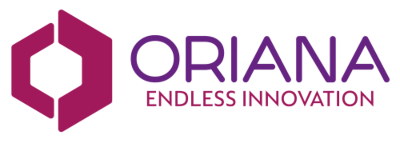Anyone with kids who are old enough to use a computer will share this concern: What are the children doing when your back is turned? You want them to connect with the world, and learn computer skills, but are they engaging with a subject they shouldn’t be, or running up huge bills?
If you’re a CIO, maybe you feel the same about the Citizen Developers in your organization.
Some problems with CDs
On the one hand, Citizen Developers are a wonderful asset. They are probably enthusiastic, and being the actual users of apps, have an investment in seeing things work well. On the other hand, what are they getting up to in the shadows? Whatever it is, you might not even find out until it comes back to bite you, at which point you may need to divert your stressed and overworked IT department to plug the holes. So one cheer for the idea of Citizen Development, but you may be feeling nervous about giving it a wholehearted welcome.
Some problems with Pros
One problem with professional developers is that they are thin on the ground. By 2030 the developer population will have likely doubled, or at least that’s what the market requires, and it’s a steep curve to meet. Pros are expensive too, and sometimes you’re paying for skills that are much higher up the food chain than is really needed for the implementation of one small app.
But the biggest downside of the Pros is that they don’t necessarily have an intimate knowledge of what is needed in an enterprise setting. Sure, they’ll get an app up and running, but does it truly match the expectations of the day-to-day users? Moreover, does that one app join up with all the other apps sitting on the ERP, or is every new iteration a separate occurrence?
The chances are that the answer to those questions is Yes, and Yes.
Citizen Developers do understand what is required – for example in a day-to-day workflow process. Their time is cheap compared to using fully Pro workers. But there are still those nagging doubts about the creation of Shadow IT, and the potential consequences of having ‘amateurs’ tinkering with the system.
Yesterday, not tomorrow
However, the fact is that the CIO has to take action, and usually the demands of the organization mean that needs to be yesterday, rather than tomorrow. The resource of Citizen Developers is, therefore, an important one to consider, but it has to be managed in a safe and controlled way.
That’s where low-code comes in, as exemplified by the Oriana Low-Code Platform. It’s huge library of customizable business application templates means that it’s possible to start from proven apps, which are easily modifiable by users – within strict parameters. The simple graphic interface and building-block approach allows rapid trialing of workflows. And if the process doesn’t work exactly as envisaged, then the blocks can be re-ordered and a new approach tried, without in any way altering the core system. ‘Playing’ with blocks is easy and intuitive, and although these are in reality blocks of code, little or no coding knowledge is required.
Bringing Citizen Development out of the shadows still means that your IT department will have the final say on the implementation of an app, but much of the ‘grunt-work’ will have been accomplished downstream, and the trial and error process will be complete by the time the Pros get involved.
So how to best support CDs in your organization?
- Realize that Citizen Developers are a valuable resource if used wisely. Support and encourage them.
- Offer the best support you can: a robust and proven platform, such as Oriana, which sits on top of the ERP, but which does not directly alter core functions, because data is abstracted by apps.
- Bring the activities of making new apps from out of the shadows, by ensuring the culture of proactive development spreads across the organization. Encourage departments to learn from one another.
- Do things in stages – typically at a departmental level. Get one app up and running (using an existing or modified template) before starting on the next. Appoint departmental CD ‘Champions’ who can share their experience and help educate others.
- Get Pro developer colleagues onside with the CD process. You are helping make the life of the Pro easier, and concentrating their talents in the most effective way. Let them know that their greater knowledge is valued and essential for the organization’s success. You have to be something of a politician as CIO, but you knew that when you took the job!
- Be clear about your own goals, and ensure that Citizen Development serves these. You are on the path of ever-greater digitalization. You are charged with making your organization’s workflows smoother, more effective, and less costly. You are doing this in an environment where time is of the essence, especially in view of the increased challenges created by the Covid-19 pandemic.
Oriana, the must-try option
Keep these points in mind, and the path to enhanced and more rapid digitalization, by leveraging the enthusiasm and talents of your Citizen Developers, will be a smooth one. The key ingredient is a low-code platform at the heart of managed change. And naturally, we’d say that Oriana is the must-try option. Fortunately, you can easily find out more by attending one of our free webinars. And no more guessing what the kids might be getting up to behind your back!



